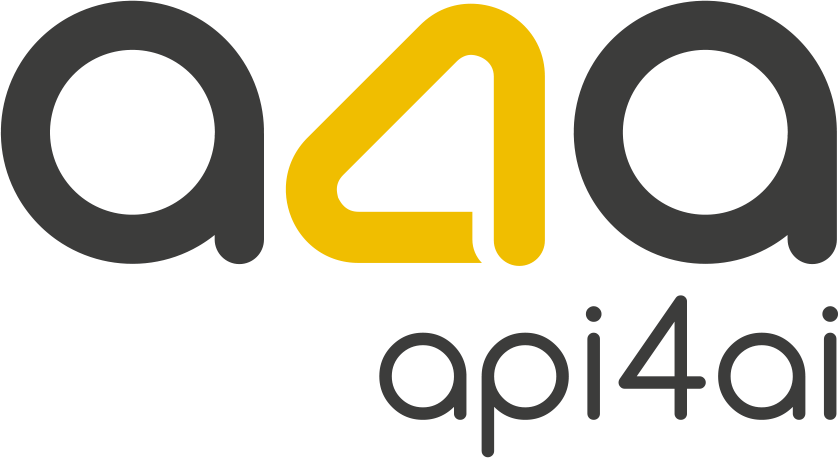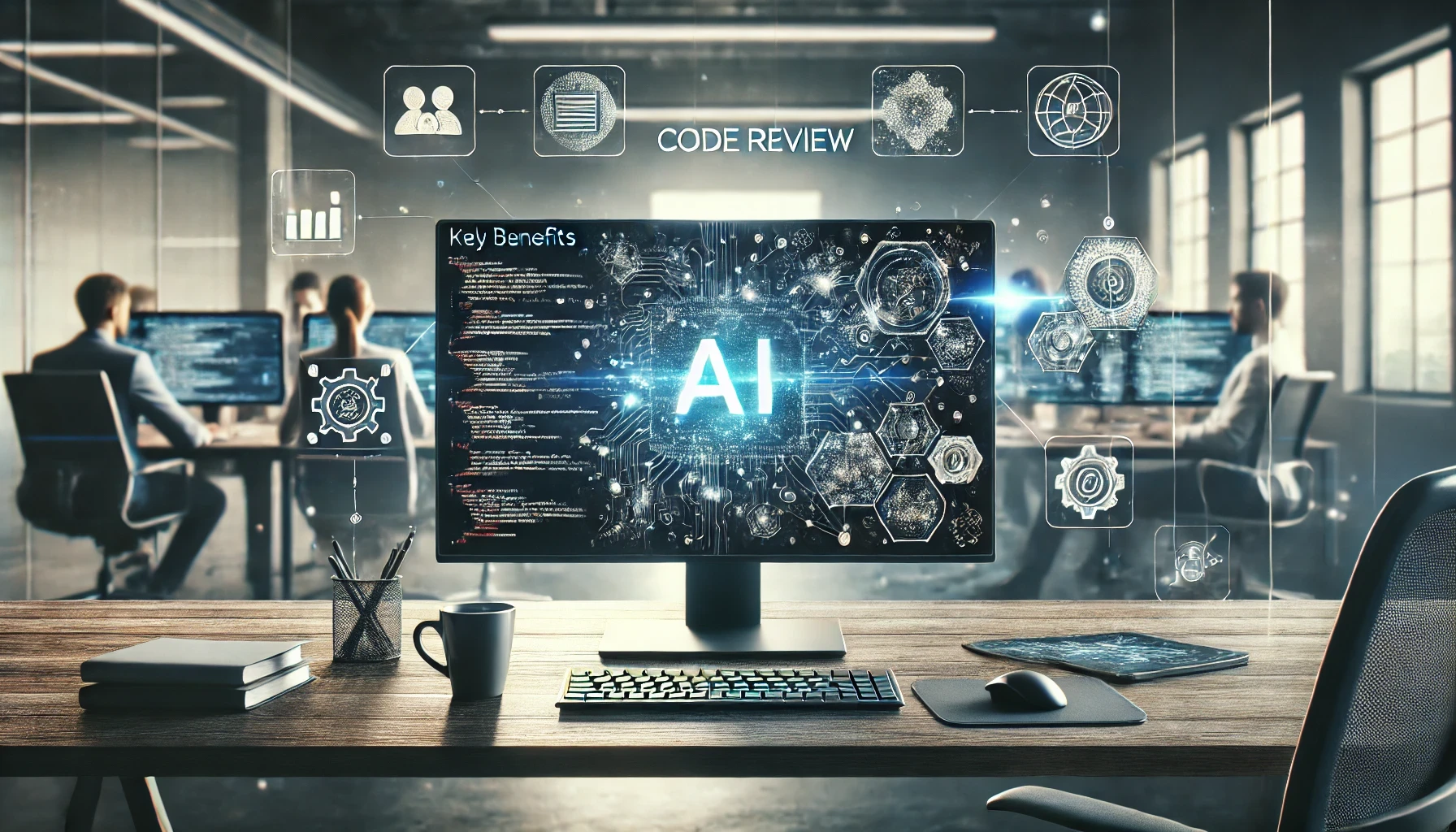Streamlining Development with AI Code Review
Introduction: The Evolving Landscape of Software Development
The Growing Complexity of Software Development
Software development has become more intricate than ever, driven by the increasing demand for sophisticated applications, faster release cycles and diverse technology stacks. Teams are tasked with managing a high volume of code while ensuring it meets stringent quality standards. In this fast-paced environment, even the smallest inefficiencies can create significant delays, impacting project timelines and budgets. As the stakes grow higher, the need for smarter, faster and more reliable tools to streamline development processes has never been greater.
The Problem with Traditional Code Reviews
Code reviews are a cornerstone of maintaining software quality, but the traditional approach is not without its challenges. Manual code reviews are time-intensive, requiring developers to carefully comb through each line of code for errors, inconsistencies and adherence to best practices. This process can be inconsistent, with feedback varying depending on the reviewer’s expertise and workload. Furthermore, manual reviews often become bottlenecks in development cycles, slowing down feature releases and frustrating teams striving to meet deadlines. These issues highlight the need for a more efficient and scalable solution.
How AI is Transforming Software Development
Enter AI-powered tools: the game-changers in modern software development. By leveraging advanced algorithms and large language models (LLMs), AI tools can automate repetitive and time-consuming tasks like code analysis and feedback generation. These tools excel at identifying complex patterns and potential issues that might be missed in manual reviews, ensuring consistent and high-quality results. Moreover, AI-powered code review accelerates development cycles, reduces task-switching for developers and enhances team collaboration. By integrating seamlessly into existing workflows, AI tools are not just simplifying the development process — they’re revolutionizing it.
This evolving landscape is paving the way for innovative solutions that enable teams to focus on what truly matters: building robust, cutting-edge software.
What is AI Code Review?
Definition and Overview
AI code review is a transformative approach to ensuring code quality by leveraging advanced algorithms, particularly large language models (LLMs), to analyze code. These models are trained on vast datasets, enabling them to understand code structure, identify potential issues and suggest improvements with remarkable precision. Unlike traditional methods that rely solely on human expertise, AI code review automates the detection of errors, inefficiencies and deviations from coding standards, providing developers with actionable insights to enhance their work. This technology empowers teams to maintain high-quality codebases while significantly reducing the manual effort required.
Key Features of AI Code Review
AI code review tools come equipped with a range of features designed to streamline development workflows and boost team productivity:
Automated Feedback: AI tools automatically analyze code changes and provide detailed, contextual feedback within minutes. This eliminates the need for manual line-by-line inspections and ensures timely reviews, even in fast-paced development environments.
Multi-Language Support: Modern AI code review systems, like CRken, support a wide range of programming languages, including JavaScript, Python, Go, PHP, Java, C#, Kotlin and C++. This versatility allows teams to use a single tool across diverse projects.
Seamless Integration: AI tools integrate effortlessly with popular development platforms such as GitLab, embedding feedback directly into the code review interface. This ensures that developers can collaborate and implement changes without disrupting their existing workflows.
Comparison with Traditional Code Review
AI code review offers significant advantages over traditional manual methods:
Speed: While manual reviews can take hours or even days, AI-powered tools provide near-instant feedback. This acceleration is critical for agile development teams working within tight deadlines.
Accuracy: Human reviewers, though skilled, are prone to oversight due to fatigue or bias. AI tools, on the other hand, deliver consistent and objective feedback, identifying even subtle issues that might be missed in a manual review.
Scalability: As codebases grow in size and complexity, traditional reviews struggle to keep up. AI code review scales effortlessly, handling large volumes of code changes and accommodating the needs of both small teams and large enterprises.
Collaboration Enhancement: AI tools complement human reviewers rather than replacing them, allowing teams to focus on more strategic aspects of development. The result is a more efficient, collaborative process that benefits from both human intuition and machine precision.
By bridging the gaps in traditional methods and introducing unprecedented efficiency, AI code review is reshaping how development teams maintain and improve their codebases.
How AI-Powered Code Review Works
The Technology Behind It
At the core of AI-powered code review are large language models (LLMs), advanced algorithms trained on extensive datasets containing diverse code samples, programming patterns and documentation. These models are designed to understand the syntax and semantics of multiple programming languages, enabling them to analyze code with human-like comprehension. By identifying errors, inefficiencies and deviations from best practices, LLMs provide targeted insights that go beyond surface-level checks. They excel at recognizing patterns and making context-aware recommendations, helping developers write cleaner, more efficient and maintainable code.
Automation in Action
AI-powered code review integrates seamlessly into modern development workflows, automating the traditionally manual process. Here’s a typical workflow that demonstrates how automation drives efficiency:
Triggering the Review: When a developer opens or updates a Merge Request in GitLab, a webhook automatically triggers the AI-powered tool to analyze the modified code.
Analyzing Code Changes: The AI reviews each file in the Merge Request, focusing on the newly introduced or updated lines. It identifies potential issues, such as syntax errors, inefficiencies, or violations of coding standards and prepares detailed feedback.
Delivering Feedback: The tool provides comments directly in the GitLab interface, alongside the developer’s and team’s notes. Each comment is contextual and actionable, making it easy for developers to address issues efficiently.
Iterative Process: As developers make changes and update the Merge Request, the AI re-analyzes the code, ensuring that new issues are caught and resolved in real time.
This streamlined process minimizes delays, accelerates feedback loops and allows teams to focus on delivering high-quality software.
Real-Time Collaboration
AI tools are not a replacement for human expertise but rather a powerful complement to it. By automating repetitive and time-consuming aspects of code review, these tools free up developers to focus on higher-level considerations, such as architectural decisions or feature enhancements. AI’s ability to deliver instant, consistent feedback fosters a collaborative environment, where:
Faster Decision-Making: Developers and reviewers can quickly address issues identified by the AI, speeding up the overall review process.
Reduced Cognitive Load: With routine checks automated, human reviewers can concentrate on more complex aspects of the code.
Seamless Team Collaboration: Feedback from the AI is integrated into existing tools like GitLab, ensuring a cohesive workflow where all contributors — human and AI — work together effectively.
By blending cutting-edge technology, robust automation and real-time collaboration, AI-powered code review transforms a traditionally tedious process into a streamlined, efficient and productive experience.
Key Benefits of AI Code Review
Speed and Efficiency
AI code review significantly accelerates the review process, delivering comprehensive feedback within minutes. Unlike manual reviews, which often require hours or even days, AI-powered tools analyze code changes almost instantly. This speed enables teams to quickly address issues and keep development moving forward. By reducing time spent on routine checks, developers can allocate more resources to building features and refining their applications, rather than fixing bugs or addressing overlooked errors.
Enhanced Accuracy
AI tools excel at identifying subtle issues and patterns that can be challenging for human reviewers to spot, especially under tight deadlines. By leveraging large language models (LLMs), AI code review ensures that even complex coding errors, inefficiencies and deviations from best practices are flagged. This leads to more consistent and reliable outcomes, enhancing overall code quality and reducing the risk of bugs slipping into production.
Support for Diverse Development Stacks
Modern development teams often work across multiple programming languages and frameworks, creating a need for versatile tools. AI-powered code review tools, such as CRken, support a wide range of languages, including JavaScript, Python, Go, PHP, Java, C#, Kotlin and C++. This multi-language capability makes AI tools an ideal solution for teams with diverse technology stacks, enabling seamless integration across various projects.
Improved Developer Productivity
Automating the routine aspects of code review not only saves time but also reduces cognitive load for developers. Instead of switching between tasks to perform detailed manual checks, developers can focus on more creative and strategic aspects of their work, such as designing robust architectures or implementing innovative features. This enhanced focus boosts productivity and morale, making development teams more effective and engaged.
Shortened Release Cycles
By delivering quick, accurate feedback, AI code review minimizes the back-and-forth traditionally associated with code review processes. Teams can address issues promptly and move forward with their development pipelines, significantly shortening feature release cycles. This aligns perfectly with agile methodologies, where speed and adaptability are critical to delivering value to users. Faster reviews translate into faster releases, giving teams a competitive edge in today’s fast-paced software industry.
AI code review is more than just a time-saving tool — it’s a catalyst for innovation, enabling teams to work smarter, deliver higher-quality code and meet the demands of modern development workflows.
Real-World Use Cases for AI Code Review
Startups: Scaling Development Without Compromising Quality
Startups often operate under tight deadlines and limited resources, making efficiency and scalability critical. AI code review tools empower small teams to maintain high-quality code without the need for extensive manual effort.
Streamlining Reviews for Lean Teams: Startups typically lack the capacity for large review cycles. AI-powered tools provide instant feedback, ensuring that even the smallest teams can confidently maintain robust codebases.
Supporting Rapid Iteration: With AI delivering feedback in real-time, startups can adopt agile development practices, quickly iterating on features and responding to user needs without sacrificing quality.
Enabling Growth: As startups scale, AI code review adapts to the growing complexity of their projects, ensuring consistent quality regardless of team size or codebase growth.
Enterprise Teams: Ensuring Consistency Across Large, Distributed Workforces
Enterprises often face the challenge of managing sprawling teams working on diverse technology stacks across multiple locations. AI code review addresses these challenges by providing a centralized, objective mechanism for maintaining code quality.
Maintaining Standards Across Teams: Enterprises rely on consistency to ensure maintainability and reduce technical debt. AI tools enforce coding standards uniformly, reducing variability in reviews.
Facilitating Collaboration in Distributed Teams: In globally distributed environments, AI bridges the gaps in communication by providing instant, actionable feedback, allowing team members to collaborate effectively across time zones.
Multi-Language Support for Diverse Stacks: Enterprise projects often involve multiple languages and frameworks. AI code review tools, like CRken, support various programming languages, ensuring seamless integration into complex enterprise environments.
Open-Source Projects: Enhancing Collaboration and Code Quality
Open-source projects thrive on collaboration, often involving contributors with varying levels of expertise from all over the world. AI code review plays a pivotal role in enhancing these community-driven efforts.
Encouraging Contribution: For new contributors, receiving immediate and constructive feedback from an AI tool can be less intimidating than traditional human reviews, fostering a welcoming environment.
Ensuring Code Quality: Open-source projects often have limited resources for dedicated code reviewers. AI automates quality checks, ensuring that contributions meet the project’s standards without overburdening maintainers.
Streamlining Collaboration: With AI providing consistent feedback, maintainers can focus on higher-level decisions while AI handles routine reviews, speeding up the integration of new contributions.
AI code review is proving to be a game-changer across diverse scenarios, from empowering resource-constrained startups to supporting large enterprises and open-source communities. By adapting to the unique needs of each environment, AI tools are redefining how teams collaborate and maintain code quality.
The Role of CRken in AI Code Review
CRken Overview
CRken exemplifies how AI-powered tools are revolutionizing code review processes. Designed as a cutting-edge solution, CRken leverages advanced large language models (LLMs) to deliver precise, actionable insights for developers. Built for seamless integration into modern workflows, CRken addresses the unique challenges of today’s development environments.
Advanced LLM Technology: At the heart of CRken is state-of-the-art LLMs, enabling deep understanding and analysis of code. This technology allows it to identify complex issues, suggest improvements and ensure adherence to coding standards with unparalleled precision.
Seamless GitLab Integration: CRken integrates effortlessly with GitLab, embedding its functionality directly within the platform’s Merge Request interface. This ensures that developers can access feedback without needing to switch tools or disrupt their workflow.
Multi-Language Support: Whether you’re working with JavaScript, Python, Go, PHP, Java, C#, Kotlin or C++, CRken supports a diverse range of programming languages. This versatility makes it an invaluable asset for teams handling projects across multiple languages and frameworks.
How CRken Works
CRken’s workflow is designed to be intuitive and efficient, aligning perfectly with modern development practices. Here’s how it operates:
Triggering Through GitLab Webhooks: Whenever a developer opens or updates a Merge Request in GitLab, a webhook automatically triggers CRken. This automation ensures that reviews happen immediately, without requiring manual intervention.
Detailed Feedback Directly in the Merge Request Interface: CRken analyzes each modified file within the Merge Request, providing detailed, context-specific feedback. Comments appear directly alongside the code in GitLab’s interface, making it easy for developers to identify and address issues. Each piece of feedback is actionable and focused, streamlining the review process.
Automation That Blends with Team Workflows: CRken is designed to complement, not replace, existing workflows. By automating routine checks and providing instant feedback, it allows teams to focus on higher-level aspects of development, such as architecture and feature design. This seamless integration enhances collaboration and ensures a smooth, efficient process from code creation to deployment.
By incorporating cutting-edge technology and a developer-friendly design, CRken demonstrates the immense potential of AI-powered code review. Its ability to automate repetitive tasks while maintaining precision and consistency makes it a valuable tool for teams striving to enhance their productivity and code quality.
The Future of AI in Code Review
Emerging Trends in AI Code Review
As AI technologies continue to evolve, the future of code review is set to become even more transformative. One significant trend is the development of deeper contextual understanding. Future AI models will go beyond analyzing individual lines of code, interpreting entire systems to provide insights into architecture, design patterns and long-term maintainability. This enhanced understanding will help developers not only fix errors but also optimize overall project health.
Predictive analytics is another area poised for growth. AI tools will soon predict potential issues before they occur, such as identifying code changes that might introduce security vulnerabilities or performance bottlenecks. These predictive capabilities will enable developers to proactively address challenges, leading to more resilient and reliable software.
AI and Human Collaboration
The future of AI code review lies not in replacing human reviewers but in augmenting their expertise. This hybrid approach leverages AI’s efficiency and consistency alongside human creativity and intuition. AI will handle routine, repetitive tasks, like checking for syntax errors or enforcing coding standards, freeing human reviewers to focus on strategic concerns such as architectural decisions and innovative solutions.
In this collaborative environment, AI can also act as a coach, providing real-time feedback and learning opportunities for junior developers. By bridging skill gaps and fostering continuous improvement, AI-human partnerships will create stronger, more cohesive development teams.
Beyond Code Review
The potential applications of AI in software development extend far beyond code review. Similar technologies are already being explored in areas such as:
Documentation Generation: AI can automate the creation of clear, concise and accurate documentation, reducing the burden on developers and ensuring that knowledge is consistently recorded and shared.
Security Audits: AI-powered tools can analyze codebases for vulnerabilities, providing continuous security monitoring and immediate feedback on potential risks.
Test Automation: AI can assist in generating test cases, optimizing testing strategies and identifying areas of code that require additional validation.
Continuous Integration/Continuous Deployment (CI/CD): AI can enhance CI/CD pipelines by predicting build failures, optimizing deployment strategies and reducing downtime.
These advancements promise to streamline not just code review but the entire development lifecycle, making AI an indispensable tool for software teams.
The future of AI in code review is bright, with opportunities to refine workflows, improve collaboration and expand capabilities into new domains. As AI continues to advance, it will not only revolutionize the way we review code but also redefine how we approach software development as a whole. By embracing these innovations, teams can position themselves at the forefront of an ever-evolving industry.
Conclusion: Why AI Code Review is Essential for Modern Development
AI code review has emerged as a cornerstone of modern software development, addressing many of the challenges posed by traditional review processes. By automating routine checks, AI-powered tools streamline workflows, allowing teams to focus on building innovative features rather than getting bogged down in repetitive tasks. With unparalleled speed and accuracy, these tools ensure higher-quality code, reduce development cycle times and enhance overall team productivity. Whether it’s identifying subtle bugs, enforcing coding standards across diverse languages, or enabling seamless collaboration, AI code review is revolutionizing the way software is developed.
As the demands of software development continue to grow, integrating AI-powered tools into your workflows isn’t just a competitive advantage — it’s becoming a necessity. The ability to deliver high-quality code faster, foster collaboration and adapt to the complexities of modern projects can redefine your team’s success. If you’re ready to elevate your development process, exploring AI code review solutions is an excellent place to start. By embracing these technologies, your team can work smarter, innovate faster and stay ahead in an ever-evolving industry.






